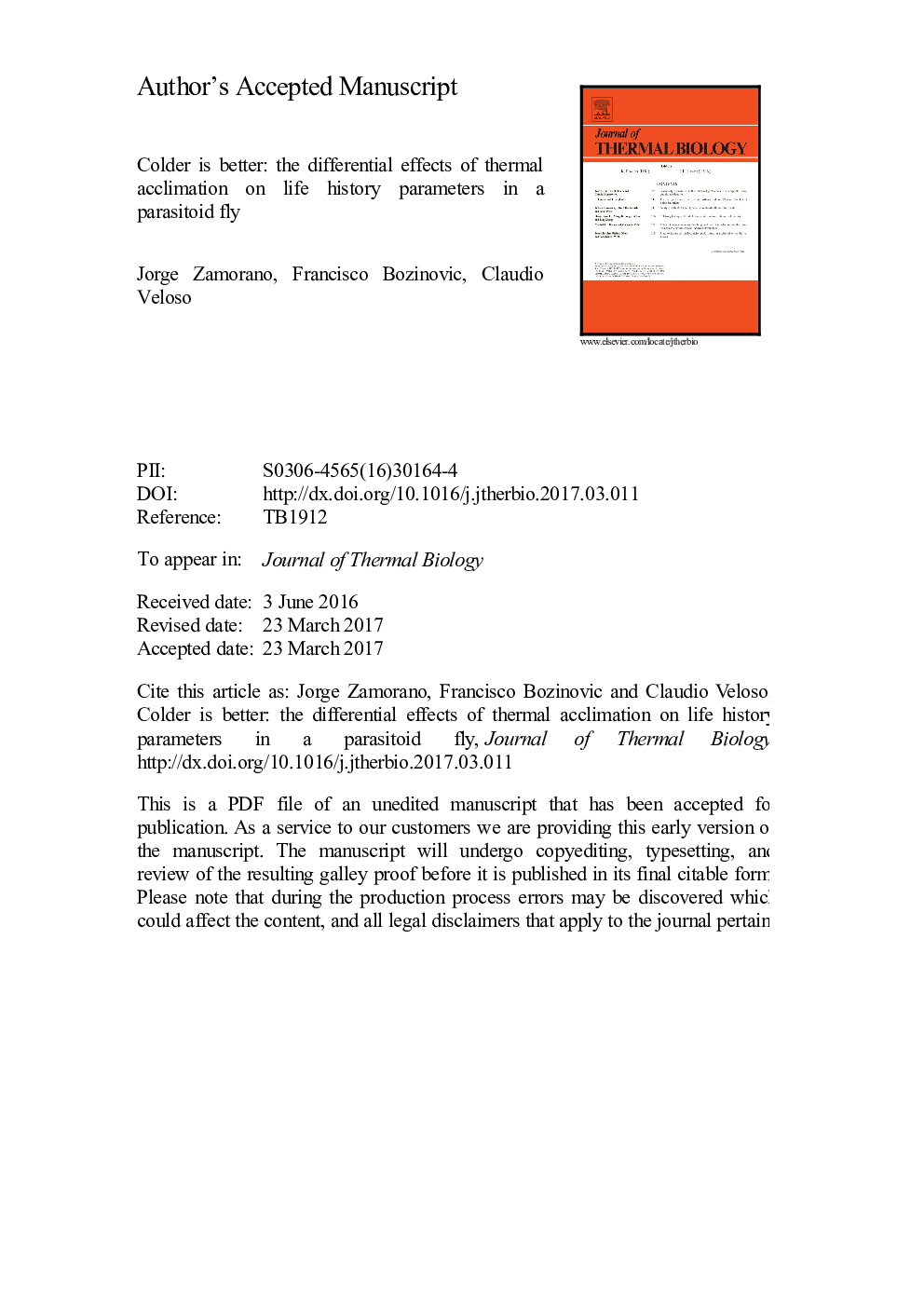| Article ID | Journal | Published Year | Pages | File Type |
|---|---|---|---|---|
| 5593448 | Journal of Thermal Biology | 2017 | 17 Pages |
Abstract
In this article, we assessed the effect of the rearing temperature on life history traits of the poorly known fly Phasmovora phasmophagae (Diptera: Tachinidae), a parasitoid of Agathemera crassa (Phasmatodea: Agathemeridae) in order to: i) test the effect of ambient temperature on life history traits and ii) assess the potential trade-off between reproduction and survival. Parasitoids were obtained from a population of hosts located in the Andes range of central Chile. Upon emergence from the host parasitoids were randomly allocated to three thermal treatments (15 °C, 22.5 °C and 30 °C) and several life history traits were measured. We recorded higher survival at 15 °C and 22.5 °C and a lower survival at 30 °C.We found differences for both body mass and head width among thermal treatments. In females, body mass was higher at 15 °C than at 30 °C. An effect of breeding temperature and sex was observed only for developmental time. In addition, males reared at different temperatures during the pupal stage and held as adults at 22.5 °C, exhibited no differences in longevity between treatments. A significant effect of temperature on the mass of ovaries and lipid was recorded in females. These patterns suggest a trade-off between reproduction and survival. Overall, data seem to support the “colder is better” hypothesis, because Andean parasitoid P. phasmophagae inhabiting and experimentally reared in colder environments have a higher performance in all environments.
Keywords
Related Topics
Life Sciences
Agricultural and Biological Sciences
Agricultural and Biological Sciences (General)
Authors
Jorge Zamorano, Francisco Bozinovic, Claudio Veloso,
